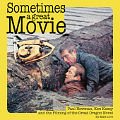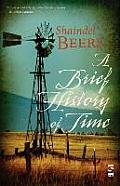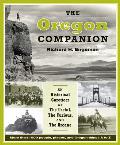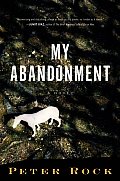
To quote Alice Cooper, "School's out... for the summer."
Well, almost. What that means for me, a high school English teacher, is that when June 11th rolls around, I get to decompress. Every summer I start the decompression by reading and doing nothing but reading. During the first few weeks of vacation, I usually finish a book a day and alternate between poetry, history, and fiction. It takes about a month of this routine to feel better, but at some point the pressure stabilizes and I'm ready to rejoin the world.
Speaking of these three genres, as the summer reading season begins, I'd like to plug three fantastic Oregon books in each of the categories.
In April I attended a literary event in Newport (where I live) called the Poetry Concord that gathered poets from all over Oregon to share their work and participate in discussions and workshops. One of the poets was Shaindel Beers, a professor of English at Blue Mountain Community College in Pendleton and author of a new collection of poems titled A Brief History of Time, published by Salt Publishing out of the United Kingdom.
 I heard Beers read several poems from her book and was astounded by their frank honesty and contemporary themes. In recent years I have grown incredibly tired of obtuse and gutless poetry and there is nothing obtuse or gutless about Beers' poems. They strike straight and true. "Why It Almost Never Ends with Stripping" is probably my favorite, but my favorite line comes from the title poem:
I heard Beers read several poems from her book and was astounded by their frank honesty and contemporary themes. In recent years I have grown incredibly tired of obtuse and gutless poetry and there is nothing obtuse or gutless about Beers' poems. They strike straight and true. "Why It Almost Never Ends with Stripping" is probably my favorite, but my favorite line comes from the title poem:
I'm no good at this love thingnonetheless, I keep on trying, like the benchwarmer
who begs to be sent in and is carried out crushed every time.
If you haven't bought a book of poetry in a while, try this one. You won't be disappointed.
I first met Richard Engeman five or six years ago when I was researching a book about Oregon history and he ably served as the Public Historian of the Oregon Historical Society (OHS). He invited me to give a presentation on Vortex I, a notorious 1970 free rock festival held in McIver Park near Estacada, and I've always appreciated his gesture and willingness to give what basically amounted to a very wild sex, drugs, and rock and roll story a chance to be heard at the state's most important historical venue. It was at this time that I became familiar with his important role at OHS and efforts to keep Oregon history fresh and lively. Sadly, OHS phased out his position, but Engeman didn't stop caring about Oregon history and has written my new favorite book about Oregon.
 Engeman's The Oregon Companion: An Historical Gazetteer of the Useful, the Curious, and the Arcane is a 430-page encyclopedia-of-a-book published by Portland's own Timber Press that lists "more than 1,000 people, places, and Oregon things A to Z." The rare photographs alone make this book worth the purchase price and I found myself learning more about Oregon in one sitting then I can ever remember.
Engeman's The Oregon Companion: An Historical Gazetteer of the Useful, the Curious, and the Arcane is a 430-page encyclopedia-of-a-book published by Portland's own Timber Press that lists "more than 1,000 people, places, and Oregon things A to Z." The rare photographs alone make this book worth the purchase price and I found myself learning more about Oregon in one sitting then I can ever remember.
It doesn't get any better for an Oregon history junkie like me, and Engeman has rendered a wonderful service on behalf of his state as it marks its sesquicentennial this year. He clearly worked his ass off for years tracking down all these stories and photographs and I'm so impressed with this book that I'll even forgive Engeman for leaving out Vortex and a picture of a naked hippie playing in the mud!
I've never met the novelist Peter Rock, who teaches writing at Reed College in Portland, or heard him read, but I have read his wonderful books. Or should I say inhaled them because once I pick up one of his novels, I cannot put them down. The Bewildered is still with me and I wish I could afford a class set to teach to high school students.
 His most recent novel is My Abandonment, loosely inspired by the sensational story from a few years ago when a man and his highly educated young daughter were living in Portland's Forest Park and then unexpectedly discovered by a hiker. The story made a big splash in the Oregonian and led to some philanthropic citizens and concerned social welfare officials trying to reintegrate the father and daughter into normal society. I can't remember how the story ended, but they didn't go back to Forest Park.
His most recent novel is My Abandonment, loosely inspired by the sensational story from a few years ago when a man and his highly educated young daughter were living in Portland's Forest Park and then unexpectedly discovered by a hiker. The story made a big splash in the Oregonian and led to some philanthropic citizens and concerned social welfare officials trying to reintegrate the father and daughter into normal society. I can't remember how the story ended, but they didn't go back to Forest Park.
Rock took this tale and imagined the father and daughter's unique and mysterious (but non-sexual) relationship in the novel. I read My Abandonment in one sitting on a perfectly sunny Saturday when I should have been doing yard work. There is something very hypnotic about Rock's writing. It performs no tricks or strains to impress. It simply penetrates and then won't go away. He also might have written the best novel where Portland was employed as a setting. In fact, Forest Park is one of the main characters in this novel. In My Abandonment, Rock makes some fascinating moves that I'm not sure I agree with, but they enthralled me. I won't spoil the ending but I can tell you it surprised me. Really surprised me.